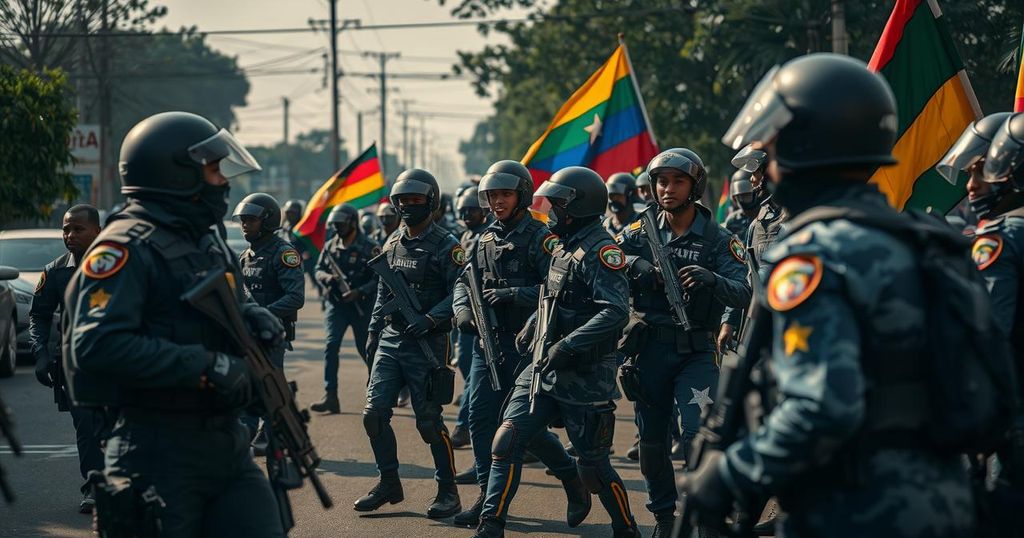Protests Erupt in Mozambique Over Election Results, Police Respond with Force
Mozambique witnessed significant protests in Maputo against alleged fraudulent election results, leading police to use tear gas on demonstrators. The opposition, accusing the ruling FRELIMO party of malfeasance, reported fatalities amidst increasing violence, prompting a heightened police and military presence. Concerns from the UN and leaders like Venancio Mondlane suggest a critical junction for Mozambique’s political future.
In Mozambique, police deployed tear gas to disperse protesters in Maputo demonstrating against the recent election results of October 9. Reports indicate that several thousand individuals participated in the demonstrations, resulting in tensions between protesters and riot police. Opposition groups have condemned the ruling FRELIMO party for alleged electoral fraud, amidst reports of escalating violence, leaving at least 18 dead, according to Human Rights Watch. Daniel Chapo of the FRELIMO party reportedly received 70.67% of the vote, while independent candidate Venancio Mondlane garnered 20.32% and RENAMO candidate Ossufo Momade received 5.81%. Subsequently, security forces have increased their presence on the streets to control gatherings. The death of a police officer during recent protests prompted warnings from Defense Minister Cristavao Chume regarding potential military interventions to safeguard state interests. In light of the unrest, UN High Commissioner for Human Rights Volker Türk expressed concern over the reported violence, urging law enforcement to adhere to human rights standards in managing protests. Opposition leader Venancio Mondlane, currently abroad due to safety concerns, characterized the moment as a pivotal time for Mozambique, suggesting a significant historical and political transition. He is supported by the smaller Podemos party in their claims of election inaccuracies. The turmoil has resulted in the suspension of port operations, followed by adjustments at the South African border, which allowed some Mozambican citizens and trucks to return amid the unrest.
The recent protests in Mozambique stem from allegations of electoral fraud following the October 9 elections, where the ruling FRELIMO party was accused of manipulation in securing a significant majority for candidate Daniel Chapo. The political climate has been charged, with opposition parties claiming discrepancies in the electoral process, which has ignited widespread unrest and led to casualties. Human rights concerns have risen as violence escalates, prompting responses from both national authorities and international human rights organizations. The situation is further complicated by the impacts on trade and border security with neighboring South Africa, reflecting the broader implications of the political crisis in Mozambique.
The protests in Mozambique represent a critical moment in the nation’s political landscape, as allegations of electoral fraud have led to significant unrest and violence. The response from law enforcement, including the use of tear gas, raises serious human rights concerns, attracting attention from international bodies. The sentiments expressed by opposition leaders signal a potential shift in Mozambique’s political dynamics, while the effects of the unrest extend to regional trade and security.
Original Source: www.dw.com




Post Comment